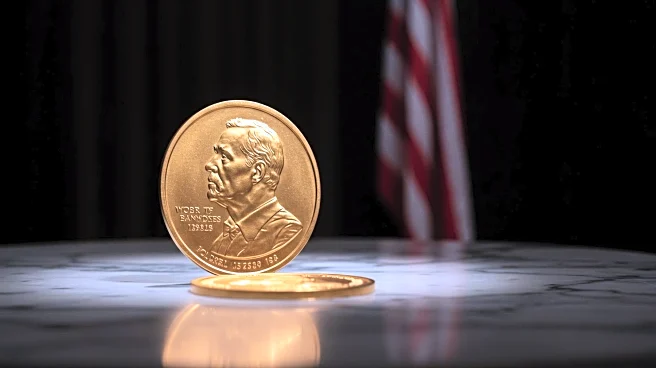What's Happening?
Hillary Clinton has expressed willingness to nominate President Trump for a Nobel Peace Prize if he successfully ends the war in Ukraine without territorial concessions to Russia. This statement was made during an interview on the 'Raging Moderates' podcast, where Clinton emphasized the importance of standing up to President Vladimir Putin. The offer comes as President Trump is en route to Alaska for talks with the Russian leader, aiming to resolve the three-year conflict. Clinton's remarks are notable given her history of criticism towards Trump, particularly during the 2016 presidential election.
Why It's Important?
Clinton's unexpected offer to nominate President Trump for a Nobel Peace Prize highlights the potential for bipartisan recognition of diplomatic achievements. If successful, Trump's efforts to end the Ukraine conflict could significantly impact international relations and enhance his legacy. Clinton's willingness to support Trump's nomination underscores the importance of resolving global conflicts, transcending political rivalries. This development could influence public perception of both leaders and their roles in international diplomacy.
What's Next?
President Trump's upcoming talks with President Putin will be crucial in determining the possibility of ending the Ukraine war. Success in these negotiations could lead to a formal nomination for the Nobel Peace Prize, potentially altering Trump's political standing. The outcome of these talks may also affect U.S.-Russia relations and the broader geopolitical landscape. Clinton's statement may prompt other political figures to consider similar gestures of support, fostering a more collaborative approach to international conflict resolution.
Beyond the Headlines
Clinton's offer reflects a pragmatic approach to international diplomacy, prioritizing peace over political differences. This gesture may encourage other political leaders to adopt a more cooperative stance in addressing global issues. The potential nomination of Trump for a Nobel Peace Prize could challenge traditional partisan narratives, promoting a focus on diplomatic achievements rather than political affiliations. This development may also inspire broader discussions on the role of political leaders in fostering global peace.











